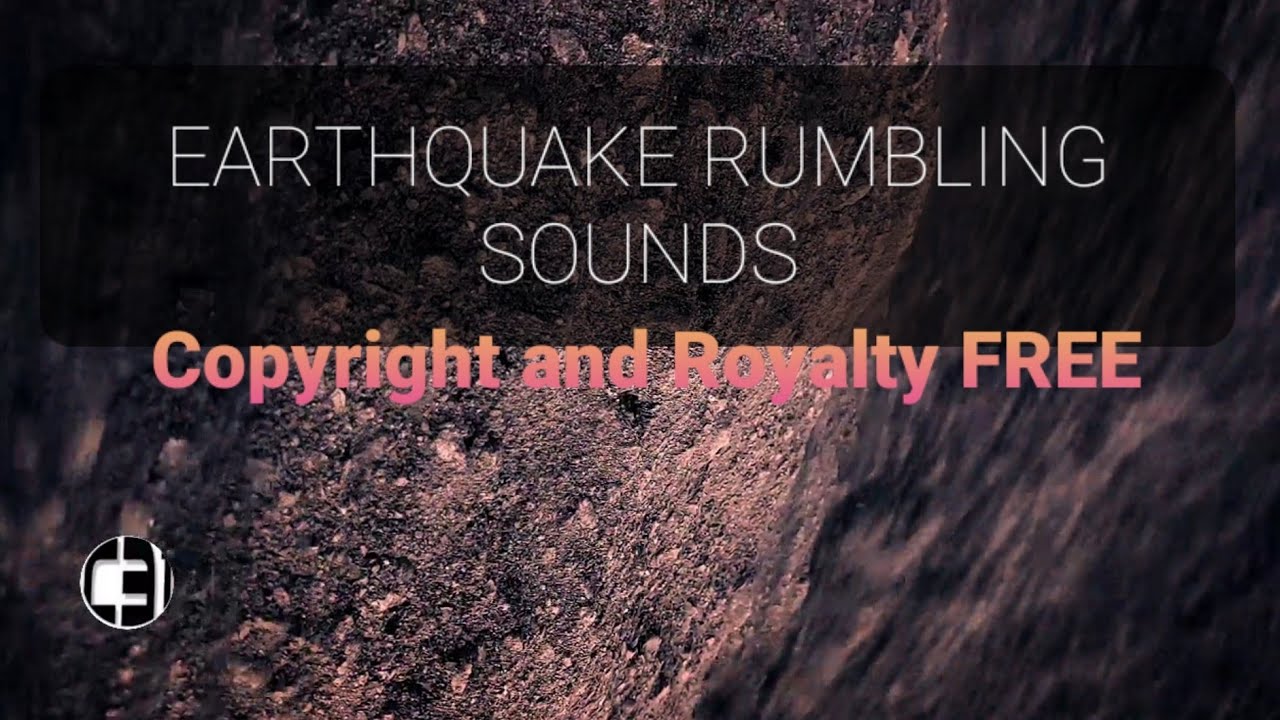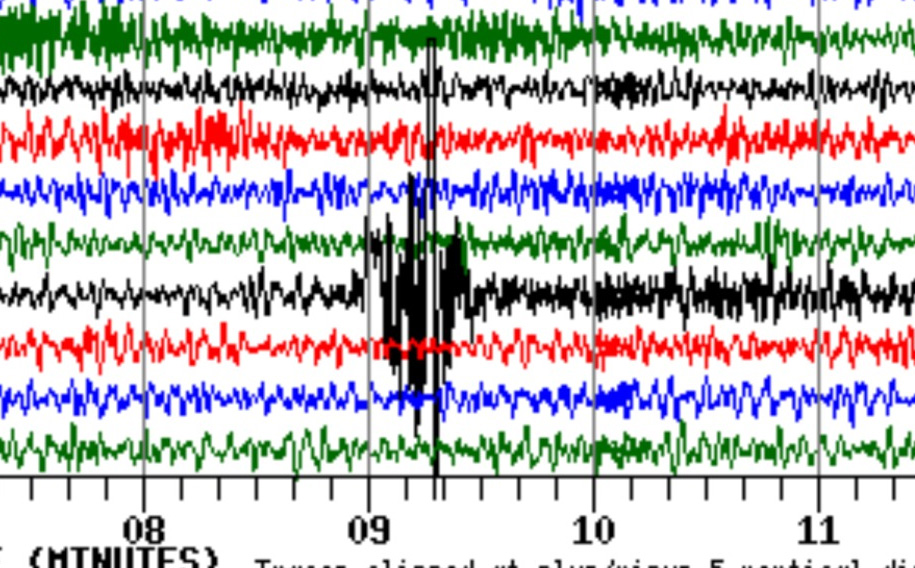Have you ever felt like the ground beneath you is shaking, even when there’s no seismic activity? It’s a curious sensation that can leave you perplexed. Many people experience unusual physical sensations that feel akin to an earthquake rumble. Whether it's a sudden jolt while standing still or a gentle sway while seated, these experiences can be intriguing and sometimes a little unsettling. Let’s dive into these sensations and explore why they might occur, shedding light on this unique phenomenon.
Understanding the Earthquake Analogy

The analogy of feeling like you’re experiencing an earthquake is more common than you might think. But why do we associate such sensations with seismic activity? Let’s break down this analogy.
Firstly, our bodies are finely tuned instruments. Just as seismographs detect vibrations, our bodies can pick up on subtle changes in our environment. Here are a few reasons why we might feel these “earthquake-like” sensations:
- Inner Ear Issues: Our vestibular system, located in the inner ear, helps us maintain balance. If there’s a disruption, such as an infection or a buildup of fluid, you might experience dizziness or a sensation of movement that parallels an earthquake.
- Muscle Tension: Stress can lead to muscle tension, which can create physical sensations that are similar to vibrations. When we’re anxious, our muscles can twitch or tremble, mimicking that earthquake rumble.
- Proprioception: This is our body’s ability to sense its position in space. Sometimes, a miscommunication between our brain and body can create a feeling of instability, making us feel as if the ground is shifting.
Moreover, our minds often connect physical sensations to familiar experiences. If you've witnessed an earthquake before, your brain might interpret any sudden jolt as a potential quake, even when it isn’t. This is a classic case of the brain’s pattern recognition, trying to make sense of an unfamiliar experience.
Additionally, there’s a psychological aspect to consider. If you’ve been stressed or anxious, your heightened state can make you more aware of bodily sensations. You might notice a heartbeat or a slight tremor that you wouldn’t have otherwise, leading to the perception of a rumbling sensation.
Lastly, environmental factors can also play a role. For instance, vibrations from nearby construction or heavy traffic can travel through the ground, giving you that earthquake-like feeling without any seismic activity. It's fascinating how our surroundings can influence our physical experiences.
In essence, the sensation of moving feels like an earthquake rumble can stem from a combination of physical, psychological, and environmental factors. By understanding these connections, we can demystify the sensation and gain insight into our body’s unique language.
Also Read This: What Time Is Royal Rumble Today? Find Out When the Event Starts
3. Common Causes of Sensations Similar to Earthquakes

Have you ever felt a sudden rumble or shake that made you question if the ground beneath you was shifting? You're not alone! Many people experience sensations that can feel eerily similar to an earthquake. But what causes these unusual feelings? Let's explore some common culprits.
1. Inner Ear Issues
Your inner ear plays a crucial role in maintaining balance. Conditions like vestibular disorders can lead to feelings of dizziness and disorientation, making it seem like the ground is moving beneath you. This is especially common in individuals with conditions such as Meniere's disease, which can cause vertigo along with a sensation of rocking.
2. Anxiety and Panic Attacks
Believe it or not, anxiety can produce physical sensations that mimic those of an earthquake. When you’re feeling anxious or experiencing a panic attack, your body goes into fight-or-flight mode. This can result in shaking or trembling, leading to the perception that the earth is quaking. If you've ever felt an intense wave of anxiety, you might relate to this sensation.
3. Muscle Spasms
Muscle spasms or tremors can be another cause of these quake-like sensations. Whether due to stress, dehydration, or fatigue, muscle contractions can create a perception of shaking. If you're prone to muscle cramps, you might have felt a sudden twitch that made you double-check your surroundings.
4. Environmental Factors
Sometimes, external factors can create sensations that feel like an earthquake. For instance, heavy machinery nearby or construction work can cause vibrations that travel through the ground. Even large trucks rumbling down the street can create a momentary feeling of disturbance. So, before you panic, consider what's happening in your environment!
5. Low Blood Sugar
When your blood sugar dips too low, you may experience shakiness or weakness. This can create an unsettling feeling, almost like the world around you is jostling. It’s a common occurrence for people who skip meals or have irregular eating patterns. Keeping snacks handy can help maintain your energy levels and stability.
Understanding these sensations can help demystify the feelings that sometimes catch us off guard. Whether it’s a minor ear issue, a moment of anxiety, or simply the world shifting around us, knowing the potential causes can bring some peace of mind.
Also Read This: How to Unlock Toga in My Hero Ultra Rumble
4. Personal Experiences: Stories from Individuals
Everyone's experience with sensations that resemble earthquakes is unique. Hearing personal stories can help others feel less isolated in their experiences. Here are some accounts from individuals who have felt their world shake in unexpected ways:
- Jessica, 32: “I was at a family gathering when I suddenly felt this intense shaking. At first, I thought an earthquake was happening, but then I realized it was just my anxiety acting up. My heart raced, and I had to step outside for some fresh air.”
- Mark, 45: “I often work in construction, and there was a day when heavy machinery was nearby. I felt this rumble through my legs, and for a brief moment, I thought it was an earthquake. I later found out it was just the equipment doing its thing!”
- Aisha, 28: “I was at home when I felt a sudden jolt. I jumped up, ready to run outside, but it turned out to be my cat jumping off the couch. It was such a silly moment but definitely made my heart race!”
- Tom, 50: “After a long day of work, I felt pretty exhausted and shaky. I was convinced the ground was moving when in reality, I hadn’t eaten anything since breakfast. A quick snack solved the issue!”
These stories highlight that sensations resembling earthquakes can arise from various circumstances. Whether it's related to our physical state, environmental factors, or just plain anxiety, sharing experiences can reinforce the notion that you're not alone. If you ever feel shaky, remember to take a moment to breathe and assess what's really going on around you!
Also Read This: Does Rumble Pay Per View? Insights into Rumble's Revenue Model
5. When to Seek Medical Advice
Feeling strange sensations in your body can be unsettling, especially if it seems like everything around you is in turmoil. If you often feel like your movements cause an earthquake rumble inside, it's essential to know when it's time to consult a healthcare professional. Here are a few indicators:
- Persistent Symptoms: If the sensation persists for more than a few weeks, don’t ignore it. Consistent discomfort can be a sign of an underlying issue that requires attention.
- Intensity of the Sensation: If the feeling escalates to something unbearable or painful, it’s definitely time to get checked out. Pain is your body’s way of saying, “Hey, something’s wrong!”
- Accompanying Symptoms: If you start experiencing other symptoms like dizziness, nausea, or changes in vision, don’t hesitate to reach out to a doctor. These could be serious indicators that need immediate attention.
- Impact on Daily Life: Are your sensations interfering with your daily activities or well-being? If you find it hard to focus at work or enjoy leisure activities, it's time to seek help.
- Family History: If you have a family history of neurological disorders or other health issues, it’s wise to be proactive. Early intervention can make a significant difference.
So, don’t be shy! Making an appointment with your healthcare provider can help put your mind at ease. A professional can run tests, provide insight, and guide you on the best next steps, whether that involves treatment or simple coping strategies.
6. Coping Strategies for Unusual Sensations
Feeling like your movements trigger an internal earthquake can be more than just weird; it can be distressing. Luckily, there are several coping strategies you can try to help manage these unusual sensations. Here are some effective ones:
- Mindfulness and Meditation: Engaging in mindfulness practices can help ground you when sensations feel overwhelming. Simple techniques like deep breathing or body scans can keep you centered.
- Physical Activity: Surprisingly, movement can help! Gentle exercise, like yoga or walking, can help your body release built-up tension and improve your overall sense of stability.
- Journaling: Writing down your experiences can provide clarity and insight. Track your sensations, noting when they occur and any potential triggers. This not only provides you with a better understanding of your body but can also be a stress reliever.
- Talk It Out: Sharing your feelings with friends or family can lighten the emotional load. Sometimes just voicing your concerns can help you feel less isolated and more understood.
- Limit Stimulants: Reduce caffeine and sugar intake, as these can heighten feelings of anxiety and make sensations feel more intense. Opt for calming herbal teas or snacks instead.
Incorporating these strategies into your daily routine can help manage those quirky sensations. Remember, it’s all about finding what works best for you. Don't hesitate to experiment until you find your comfort zone!
 admin
admin








